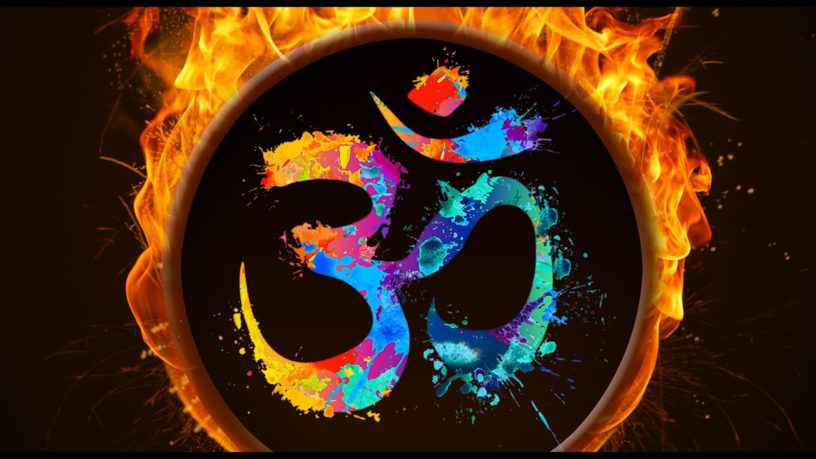Hinduism and Philosophical Posthumanism: How Hinduism has always taught us to become and think beyond our anthropocentric manifestations
Pt. Varistha Persad, Director, Swaha International
‘I’ know why ‘you’ are confused as to who ‘I’ am and who ‘you’ are. Let’s simplify this… look at yourself in the mirror, what do you see? If ‘you’ see yourself then that is ‘a reality’. So, yes, you do exist in a human form, with many attributes – mental, emotional and physical markers, but is that all? To some extent, we understand our place in this universe. Once the Universe is identified as a physical construct and the key word being, ‘identifiable’, meaning, we can perceive or we ‘know’ our surroundings. What happens when technological advancements create new spatial constructs? If we are human in our real world, what are we or what do we become in the virtual world? If you are concerned right now with the friends you have lost, the family members who have become disconnected and the boundaries that have become blurred beyond recognition, trust me when I say, you are one of many who are coming to terms with the posthuman challenge.
The definition of the term “posthuman” is highly technical for this discussion. In Hinduism, the inevitability of losing our human form and existing as the soul or in another body when it reincarnates has already trained us to accept that we will not exist as one species forever. Our pundits in their kathas and discourses also make us aware that moksha or freedom from the mortal coil can be possible in multiple forms or in any other form, for example, Jataayu in the Ramcharitmanas. The advent of virtual worlds and the posthuman future where climate change, artificial intelligence, nanotechnology and biotechnology will force us to rethink the way we define ourselves. Believe it or not, we have already been learning and training our minds for this! Meditation, yoga, pranayama, puja, yagya, japa, tapa and reading our scriptures all prepare the human being for the posthuman future. Francesca Ferrando in her chapter, “Humans have always been Posthuman: A Spiritual Genealogy of Posthumanism,” states:
Posthumanism is deeply indebted to the spiritual realm, its offerings are unique, original and very much needed. In the age of the Anthropocene, Posthumanism is required to develop daily ethics of living based on an integral investment of its post-anthropocentric premises. The notion of spirituality helps us answer these questions, as it dramatically broadens our understanding of the posthuman, allowing us to investigate not only technical technologies (robotics, cybernetics, biotechnology, nanotechnology, among others), but also, technologies of existence. In this sense, we have always been posthuman. (243-256)
The peaceful nature of true Hindus, their absolute focus on the Divine, their belief in ahimsa and an inclusive world view allow them to be most prepared to survive in our posthuman future. At present, as people live and exist partially invested in their virtual worlds and as communication, identities, societies, beliefs and practices evolve to include these new technological advances and what is now being labelled the Fourth Industrial Revolution, it is becoming very difficult to define ourselves. The breakdown of any society begins when the future is difficult to accept, when change is stymied and when people are not valued or commodified. We are reminded in the Bhagavad Gita, Chapter 2, Verse 45:
trai-guṇya-viṣhayā vedā nistrai-guṇyo bhavārjuna
nirdvandvo nitya-sattva-stho niryoga-kṣhema ātmavān
Meaning: The Vedas mainly deal with the subject of the three modes of material nature. Rise above these modes, O Arjuna. Be transcendental to all of them. Be free from all dualities and from all anxieties for gain and safety, and be established in the Self.
Sanatan Dharma has always identified “us” as posthuman and as such we should approach the world from an ecocentric point of view that will make life easier as we live in tandem with nature and not against it. The relationships we hold dear and the importance that we place on material objects will be shattered if we do not learn to cope. Our relationships, possessions and identities are becoming virtual as technology evolves to meet the demands of a growing global population. In this age of Kaliyuga, it is very difficult to remain grounded and firm in one’s resolve especially with shifting spatio-temporal realities but doing so will make us survive and attain oneness with the Divine.



